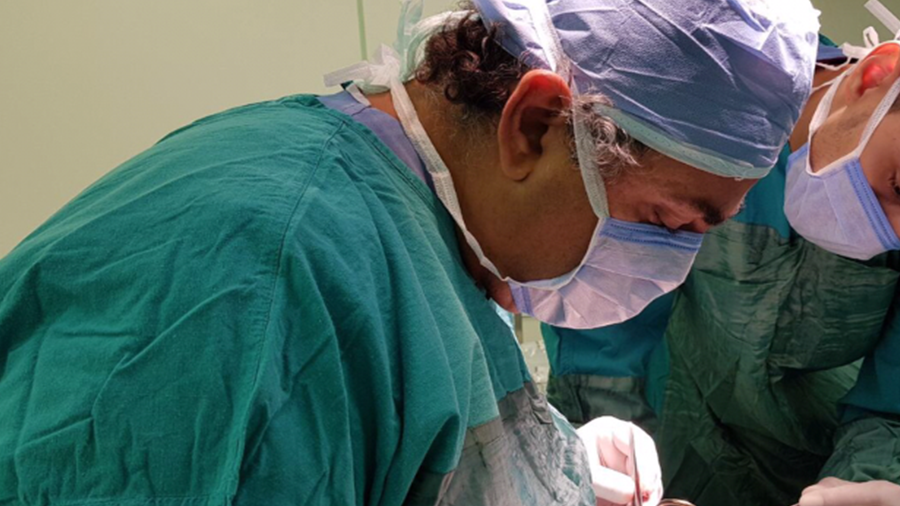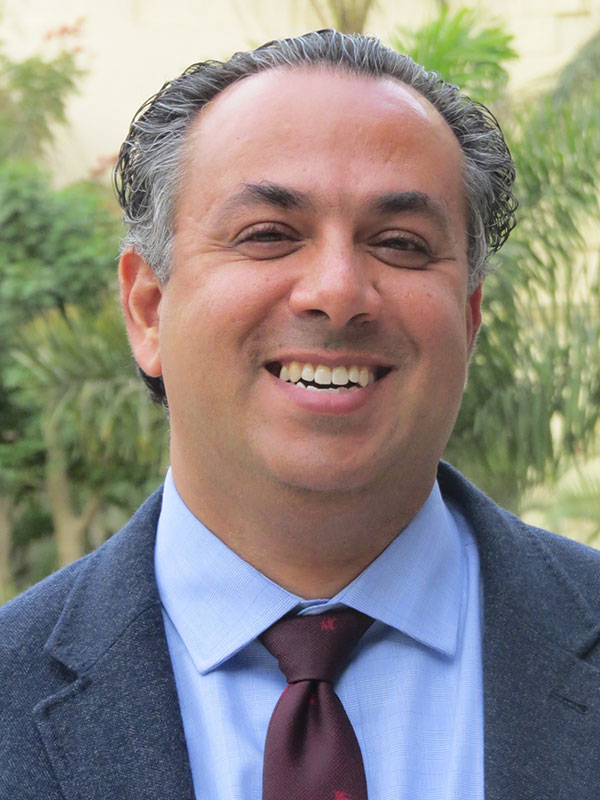Getting to Know: Amir Elbarbary
Amir Elbarbary is a Professor of Plastic Surgery at the Ain-Shams Faculty of Medicine in Cairo, Egypt

Where are you now?
I’m jet-lagging my way back home after participating in the 17th International Society of Craniofacial Surgery (ISCFS) meeting. I am currently a professor at Ain-Shams Faculty of Medicine in Cairo, Egypt, and I also have my own private practice. I am usually very busy during the week, so on weekends, I enjoy going out to the sea in my little boat “Scappa” or barbequing with close friends.
What's your official title? What does it mean to you?
Professor of Plastic Surgery. I enjoy being a surgeon and I take my job as a professor very seriously. I feel it’s a duty to educate the upcoming generation.
What is your educational background?
I am a medical school graduate with doctorate degree in plastic surgery. I did a craniofacial fellowship at UCLA with Professor Henry Kawamoto.
Why did you become a surgeon?
It goes back to when I was 14 years old and I fractured my femur while playing soccer. I witnessed how could thighs get shortened and how, as a result, your life can be turned upside down in a matter of seconds. When this happened to me, I was taken to the hospital and a traction pin was placed through my knee, so that the displaced segment of bone would move back into its normal position over the course of several weeks. On the following day, the consultant surgeon passed by my bed and decided to surgically place an intramedullary nail instead. This solution got me out of bed in just a few days. This event served as a kind of inspiration for me to become an orthopedic surgeon, as I was captivated by how surgery can fix things in such short time.
When I got into medical school, I started to like neurosurgery, and spent some time in their department. I noticed that the outcomes back then were truly disappointing after spending too many hours in the OR, and I didn’t feel content with them. I then had a rotation in the plastic surgery department and was amazed by this rapidly evolving specialty, were one can witness the change made by surgery on the operating table. I then made up my mind to become a plastic surgeon. It is because of my passion in orthopedics and neurosurgery that I subspecialized in craniofacial surgery.
“What could be possibly better than feeling blessed in achieving instant results on the operating table, being able to have a positive impact on patients’ and families lives by bringing them happiness, and, to an equal extent, witnessing the progress of students and fellows that you were fortunate enough to teach?”
What is your area of specialty?
I specialize in both craniofacial surgery and aesthetic surgery.
What's the best professional advice that anyone ever gave you?
“Team work” and “Thinking more than one step ahead” are truly the shortest ways to success. This applies to almost every aspect of our lives and is especially true in the OR, where members of a team know exactly what their role is. This saves a lot of time and guarantees precision.
What books are on your nightstand?
The manual for my Garmin watch has been sitting there for quite sometime now!
Coffee or tea?
Neither.
Name five artists on your iPod.
Pink Floyd, Dire Straits, Julio Iglesias, Snatam Kaur, and Fairouz.
What is most fulfilling to you in your work?
My job is very rewarding and provides me with a true sense of satisfaction. What could be possibly better than feeling blessed in achieving instant results on the operating table, being able to have a positive impact on patients’ and families lives by bringing them happiness, and, to an equal extent, witnessing the progress of students and fellows that you were fortunate enough to teach?
“Through AO CMF, I have gotten to know wonderful people with diverse backgrounds and different specialties from all over the world.”
Tell us about the most important experience in your life as a surgeon.
Every time I go into surgery, it becomes the most important experience. I become conscious that I need to live up to the responsibilities, patients’ expectations, and trust.
If you weren't working in the medical field, what would your dream job be?
I’ve always admired diplomats, although I’m not into politics. A photographer or a sailor would be something else that I would definitely enjoy doing.
Do you have a mantra or favorite saying?
Although I don’t have a favorite mantra, listening to Ra Ma Da Sa and Servant of Peace by Snatam Kaur relaxes me. On the other hand, I do have a few favorite sayings. Here are a few of them, that might seem similar, yet are different:
“When one speaks, they are only repeating what they already know. When they listen, they might learn something new.”
“Those who speak do not know; those who know, don’t speak.”
In a few words, what does AO CMF mean to you?
It is my big family where all members share common interests and a passion for quality education and excellence. Through AO CMF, I have gotten to know wonderful people with diverse backgrounds and different specialties from all over the world.

